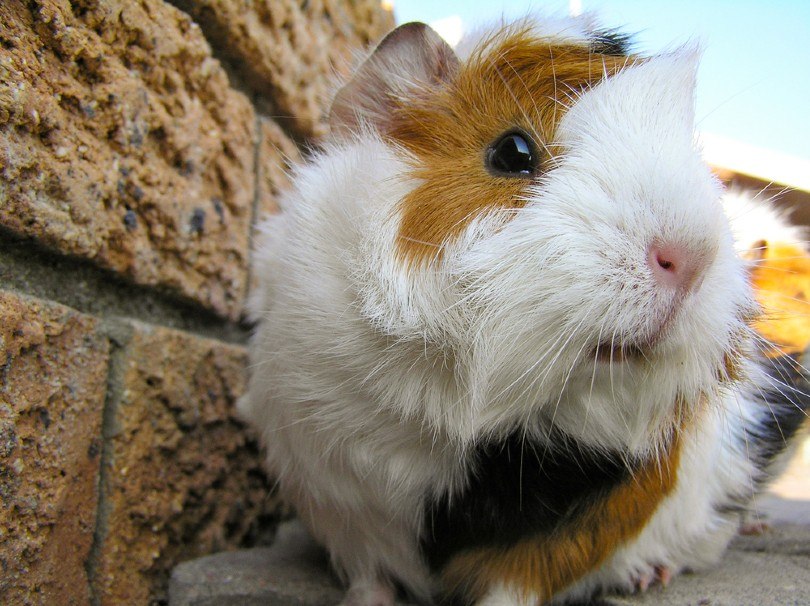
Guinea pigs have been popular companion animals for millennia. Evidence suggests that these cuddly tiny mammals were first domesticated in the Andes more than 7,000 years ago. Between 1200 and 1500 C.E., Guinea pigs were selectively bred for colors and temperament throughout South America.
Returning Spanish conquistadors brought them back to Europe following their adventures in South America. Throughout Europe, Guinea pigs became increasingly popular as pets during the 16th century. Even Queen Elizabeth I had one as a pet. But these popular critters are prone to getting stressed out.
They’ve gained a reputation as being a bit nervous. If you’ve noticed signs of stress in your pet, such as hiding or overgrooming, it’s essential to identify the problem so you can make the changes required to improve your Guinea pig’s mental health. Read on to discover 9 things that stress guinea pigs out.
The 9 Things That Stress Guinea Pigs Out:
1. Their Enclosure Is Too Small
Guinea pigs are relatively small and don’t require much space to be happy. But Guinea pigs living in enclosures that are too small for their needs often become stressed. The Humane Society suggests that single Guinea pigs be housed in enclosures with at least 7.5 square feet of interior room, and 10.5 square feet is optimal for a cage with two animals.1
Don’t forget to provide a nice wide bowl for pellets, a saucer for veggies, and a side-mounted water bottle. Fresh bedding, toys, and places to burrow and hide are also absolute musts.
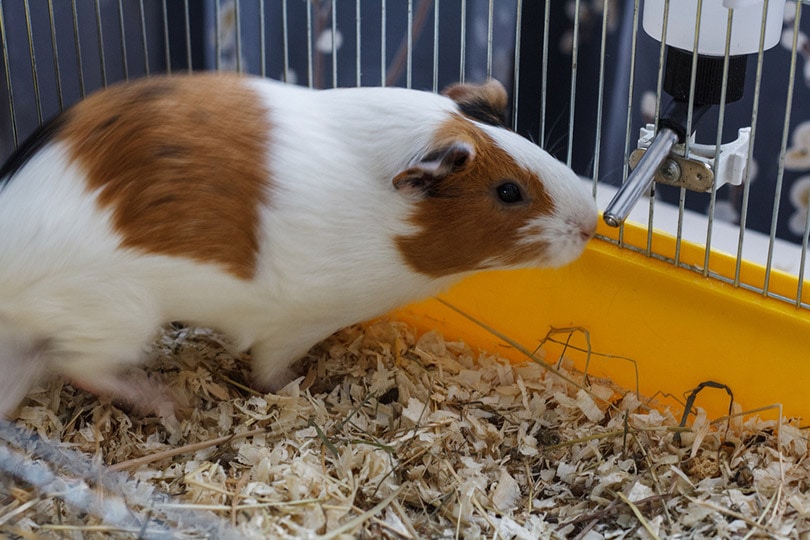
2. Drastic Temperature Changes
As a general rule, Guinea pigs aren’t hard pets to keep. But once Guinea pigs get used to something, many don’t appreciate changes. These critters can be particularly persnickety about their food, housing, and the temperature of the room they live in.
They don’t like extremely high temperatures; anything over 80 degrees Fahrenheit is too much. Aim for an ambient temperature between 65 and 75 degrees Fahrenheit, and try to keep it the same year-round. Temperature changes stress some of these sweet rodents out to the point where they’ll start pacing and stop eating.
3. Routine Changes
Guinea pigs are incredibly sensitive. They don’t take well to most changes either in their environment or in their routines. Guinea pigs often get stressed when caregivers switch jobs or take on new time-consuming responsibilities, as they must adjust to getting more or less attention.
Guinea pigs don’t do well when left alone for long periods, so try to carve out some Guinea pig cuddle time when you’re struggling through significant life changes to keep your buddy on an even keel. Adding a few extra toys to your pet’s enclosure can also help distract them while adjusting to your new circumstances.
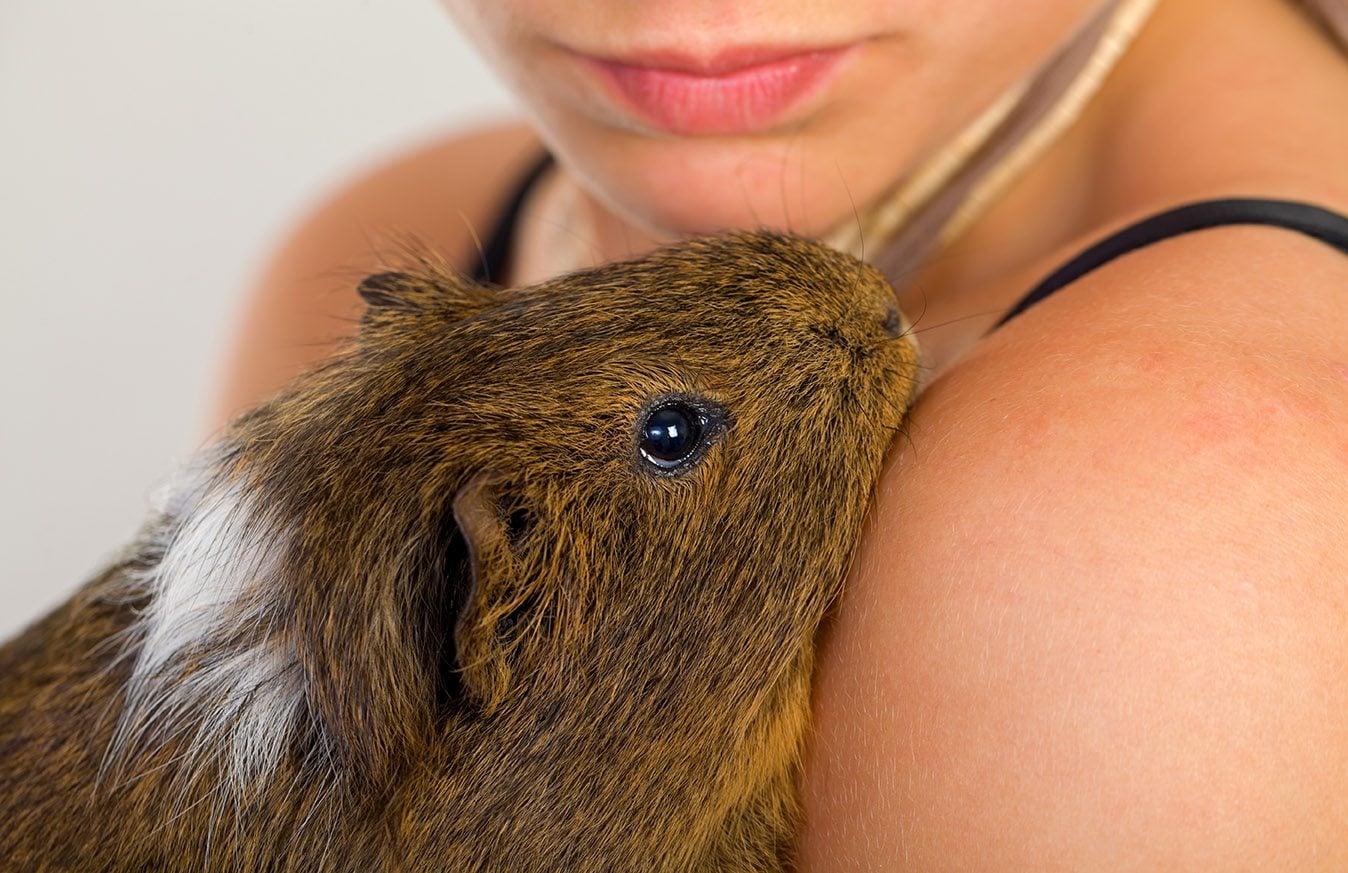
4. Too Much Noise
Guinea pigs have great ears. They can hear better than humans at high frequencies! But this super hearing can cause problems if your pet is exposed to loud noise. Vacuum cleaners and other appliances that create a racket are often problematic when run around Guinea pig cages.
Pets exposed to loud noises over long periods, like during home construction or remodeling, sometimes show signs of stress. Make sure to give your buddy lots of places to dig and hide so that they can manage their stress appropriately. A few yummy sweet potato or carrot treats might also help!
5. Boredom
Guinea pigs need exercise to be healthy, both mentally and physically. Pets without stimulation can quickly become bored, which often leads to stress. Provide your Guinea pig with lots of places to burrow and hide. Tunneling gets their little bodies moving and provides them with a sense of comfort.
Guinea pigs love to chew on things and require chewable toys to keep them happy. Plush toys are generally okay, but try to avoid products with small pieces that can break off and pose a choking hazard. Guinea pigs don’t like to climb, so keep their play spaces at the bottom of the cage.
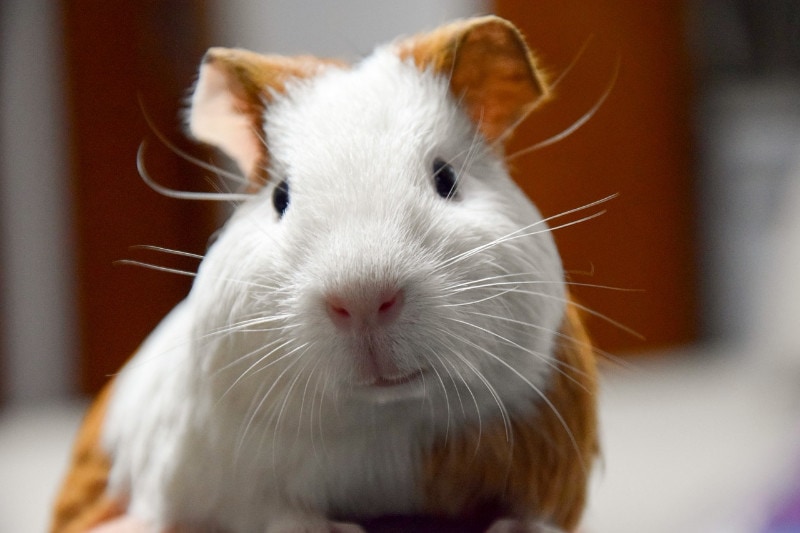
6. Cats, Dogs, and Eagles
Guinea pigs are prey animals. Cats, dogs, and even predatory birds will make a snack of a juicy Guinea pig in a minute. Guinea pigs housed outside often see predators, like swooping falcons and prowling neighborhood cats. The presence of predators almost always creates stress in prey animals. It’s part of how they survive.
But caged Guinea pigs can’t get away, so they’re stuck stewing in stress in the presence of predators. A cat or dog in the house can be too stressful for some of these animals. If you have dogs or cats, consider setting up a room for your Guinea pig that’s entirely off-limits to your other pets.
7. Too Much Petting
Guinea pigs need attention, and most don’t object much to being handled, particularly after they’ve grown accustomed to their surroundings. New pets and younger animals are sometimes skittish and need to be handled with lots of love and care.
Too much handing can overstimulate Guinea pigs, causing them to withdraw and avoid human contact. About 30 minutes of handing per day is more than enough, particularly if your pet is getting used to being picked up and petted. Younger children often need help learning how to handle Guinea pigs gently.

8. Not Enough Cage-Free Time
These adorable furry creatures need plenty of room to run around and exercise. They require substantial enclosures, toys, and places to hide for optimum health. But Guinea pigs also benefit from time outside of the cage. Consider allowing your pet to explore the world outside their enclosure for about 1 hour per day.
Remember to ensure there are no cords or other chewable objects on the ground where your Guinea pig can take a nibble while you’re not looking. To give your pet a serious treat, consider letting them spend some time in an outdoor hutch so they can enjoy the fresh air.
9. Environmental Changes
Guinea pigs don’t do well with change, particularly regarding enclosures, food, and bedding. Although it may be tempting to buy a high-tech rodent palace for your pet, it may not go over so well with your buddy. After you’ve found the equipment and food your pet is comfortable with, stick with them if possible. However, it’s fine to provide your pet with a different type of green leafy vegetable every day to ensure they get all the vitamins, minerals, and nutrients they need.
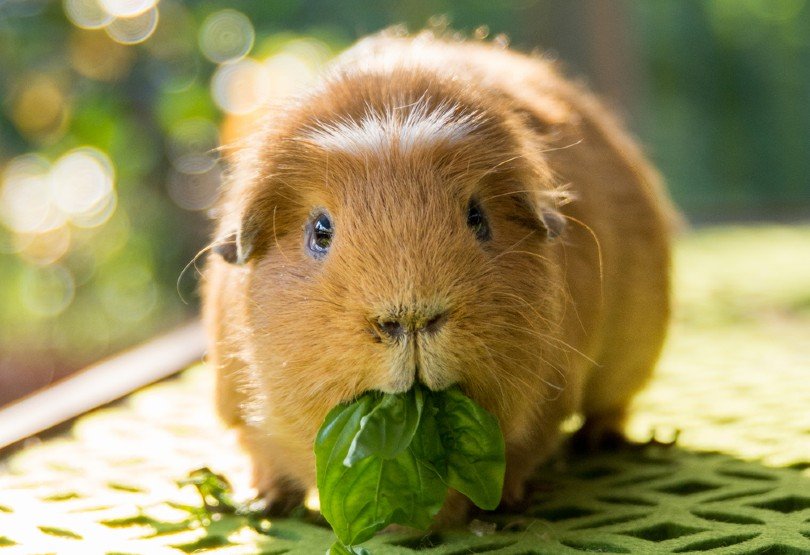
Conclusion
Guinea pigs are incredible pets. They’re quiet, easy to care for, loving, sweet, and can live for up to 8 years, making them excellent companions. But these cute creatures are vulnerable to anxiety. It doesn’t take much to get one stressed out. Common triggers include too much petting, boredom, and even fear.
Give your pet several chew toys and places to hide to increase their sense of safety and comfort, and allow it to roam free in a hazard-free room to combat boredom.
Featured Image Credit: Hurly D’souza, Shutterstock








